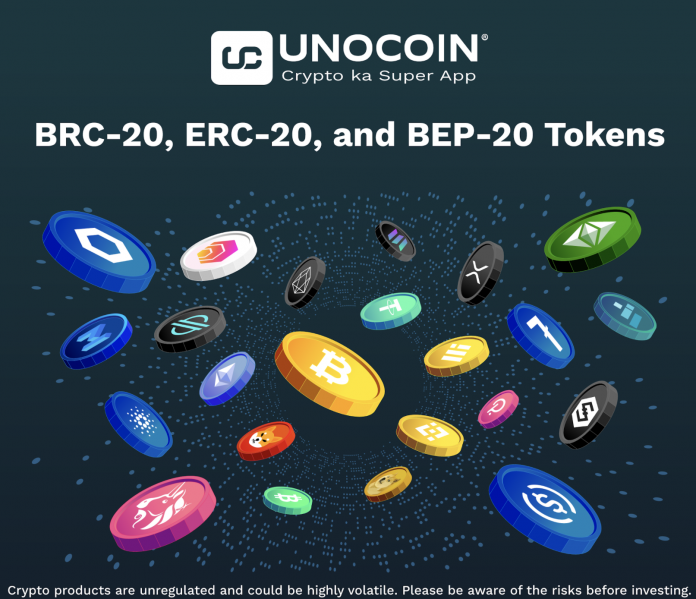Introduction:
Blockchain technology revolutionized the cryptocurrency world by introducing the concept of tokenization. Tokens represent digital assets or tools within the blockchain ecosystem. ERC-20, BRC-20 and BEP-20 are three prominent token standards used on various blockchain platforms. This article aims to dive into the key differences between these standards, highlight their features, and performance and compare their pros and cons.
ERC-20: Ethereum’s Token Standard
Example: Ether (ETH), Chainlink (LINK), Uniswap (UNI)
Performance: ERC-20 tokens benefit from Ethereum’s large user base and extensive developer community. Ethereum’s established ecosystem enables robust decentralized applications (DApps) and smart contracts.
Pros:
Wide adoption: ERC-20 tokens have gained significant popularity and have been widely adopted in various applications, exchanges and wallets.
Interoperability: ERC-20 tokens can seamlessly interact with other Ethereum-based tokens, increasing liquidity and compatibility.
Disadvantages:
Scalability: Ethereum’s scalability issues have led to network congestion and high transaction fees, affecting users of ERC-20 tokens.
Limited functionality: ERC-20 tokens have limitations when it comes to more complex functionality such as handling non-fungible tokens (NFTs).
BRC-20 Tokens:
Example: Ordinals, Shib, Piza, VMPX, etc
- Compatibility with the Bitcoin network allows for seamless integration.
- Simple tokenization process, user friendly.
- Security is enhanced by leveraging Bitcoin’s robust blockchain.
- Potential for growth and innovation with a diverse user base.
Disadvantages of BRC-20 Tokens:
- No smart contract feature limits the possibilities.
- Dependence on the Bitcoin blockchain can lead to issues with scalability and transaction speed.
- Limited interoperability with other blockchain networks.
- Not suitable for tokenizing non-fungible assets or implementing complex functions.
BEP-20: Binance Chain’s Token Standard
Example: BUSD (Binance USD), BakeryToken (BAKE), Safemoon (SAFEMOON)
Performance: BEP-20 tokens are native to the Binance chain and provide high-speed and low-cost transactions. Binance Chain’s simplicity allows efficient token creation and management.
Pros:
Efficiency: BEP-20 tokens offer fast block times and low transaction fees, making them suitable for applications that require fast and frequent token transfers.
Seamless integration: BEP-20 tokens can be easily integrated into the Binance Chain ecosystem, including wallets, exchanges and DApps.
Disadvantages:
Limited Ecosystem: The Binance Chain ecosystem is not as extensive as Ethereum, resulting in fewer development tools, DApps, and exchanges supporting BEP-20 tokens.
Potential Centralization: Similar to Binance Smart Chain, there are concerns about the level of centralization within the Binance Chain network.
Conclusion:
Choosing between BRC-20, ERC-20, and BEP-20 tokens depends on various factors, including scalability needs, decentralization preferences, and ecosystem support.
ERC-20 tokens have the advantage of wider adoption, extensive tools and interoperability. BRC-20 tokens offer compatibility with the Bitcoin network allowing for seamless integration.
BEP-20 tokens provide efficiency and simplicity within the Binance Chain ecosystem. Ultimately, the choice should be based on the specific requirements and goals of the token issuer, taking into account factors such as transaction speed, cost, decentralization, and ecosystem support.
Please find the list of authentic Unocoin accounts for all your queries below:
- YouTube Channel: https://www.youtube.com/c/Unocoin/videos
- Newsletter: https://medium.com/subscribe/@Unocoin_growth
- Blogs: https://blog.unocoin.com
- Instagram: https://www.instagram.com/unocoin/
- Twitter: https://twitter.com/Unocoin
- Facebook: https://www.facebook.com/unocoin/
- LinkedIn: https://in.linkedin.com/company/unocoin
- Telegram Group: https://t.me/Unocoin_Group
- Telegram Channel: https://t.me/+fasQhTKBsfA5N2Zl
- Telegram: https://t.me/UnocoinSupport_Bot
- E-mail id: [email protected]
- Contact details: 7788978910 (09:30 AM IST – 06:30 PM, Mon – Sat)
- App store link: https://apps.apple.com/us/app/unocoin/id1030422972?ls=1
- Playstore link: https://play.google.com/store/apps/details?id=com.unocoin.unocoinwallet
Disclaimer: Crypto products are unregulated as of this date in India. They could be highly volatile. At Unocoin, we understand that there is a need to protect consumer interests as this form of trading and investment has risks that consumers may not be aware of. To ensure that consumers who deal in crypto products are not misled, they are advised to DYOR (Do Your Own Research).




